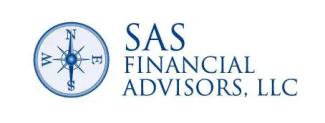Election 2020 and Market Certainty/Uncertainty
Last week’s VP Debates, a summary of quarter over quarter recovery decreases and increases, and the marginally steepening Treasury yield curve were mentioned in our SAS newsletter. This week, we focus more concretely on the election, only three weeks away on Tuesday November 3rd, 2020.
Election 2020
The election is now 3 weeks away. Markets seem to have minimal concern over a delayed election decision. Goldman Sachs told clients they feel like the probability of an uncertain outcome is declining. At the same time two vaccine trials have been paused because of bad outcomes and one antibody trial has been paused for the same reason.
More information on voting here.
Markets
Markets gave a big shrug and declined this week but not to the degree that many investors would expect. We have entered a bad news is good news and good news is good news as far as the markets are concerned. Valuations are at a level that says risk has increased and 10 year market returns will be much lower than historical returns.
Growth stocks have dominated market returns over the past 10 years, outperforming value stocks. There is some speculation that going forward this could change with value outperforming growth. Higher dividends are one of the features of value stocks that make them attractive in this environment.
Economy
Fiscal stimulus has failed to gather any momentum and will probably have to wait until after the election. 3rd quarter earnings have started this week with the banks and Delta Airlines; banks were better than expected but concerned about the economy going forward and Delta’s earnings were terrible with an expectation for a long recovery period. A continuing trend: not a whole lot of visibility on the economy going forward. This is earnings season so we should have more to report each week.
Behavioral Finance
Behavioral finance is an area of study involving human behavior and decision making in particular, decision making related to personal finances and investing. Two weeks ago, an interesting study came out confirming our view of human behavior, our biases, and finances. Our biases play an important role in our decisions. Some common examples in our lives are overconfidence, loss aversion, confirmation bias, relativity bias and many more.
This research study "We Learn Faster When We Aren't Told What Choices to Make," discusses “forced choice” vs. “free choice” bias. It turns out as no surprise that free choice, in which your ability to feel like you have control, results in decisions that make individuals more satisfied, are longer lasting and more likely to have follow through. The relevance of this research might apply to the pandemic in terms of forcing people to act a certain way, to wear a mask for instance. A public health forced mandate might be, while critically important to adhere to, less effective in and of itself as a scientific fact rather than using a persuasive marketing campaign that makes the choice a patriotic public health decision.
At SAS, this is how we view our work with you. We aim to provide an environment where you can take control and drive your decisions based on your own data and a general knowledge of the markets and savvy personal finance insight. In our practice our goal is to help you set the most appropriate framework and then explore the options with you -our client- to make the final choice.

